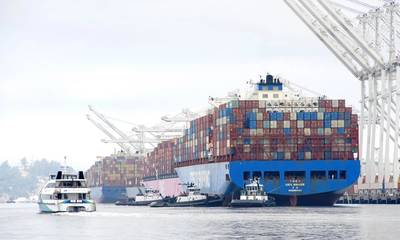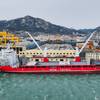CARB Approves Twin Disc's Electric Propulsion Conversion Kit for CORE Discount
An electric propulsion system conversion kit developed by power transmission technology company Twin Disc and distributor partner Palmer Johnson Power Systems has been approved by the California Air & Resources Board (CARB) under the Clean Off-Road Equipment Voucher Incentive Project (CORE).
The CORE incentive program aims to encourage California off-road equipment users to purchase or lease currently commercialized zero-emission off-road equipment by offsetting the higher cost of zero-emission technology with a point-of-sale discount.
The Twin Disc system eliminates the main diesel engine and its maintenance costs, and cuts fuel costs and emissions by providing configurable power-dense energy storage systems to efficiently power the application. By integrating Twin Disc’s system, operators can benefit from substantial operational efficiencies and environmental advantages, while also gaining access to financial incentives available through the CORE program.
“We are proud to contribute to California’s environmental initiatives and support the maritime industry’s shift toward sustainable practices,” said Klaus Meyersieck, Global Product Manager at Twin Disc. “This approval by CARB is a testament to the hard work and dedication of our team and our partners at Palmer Johnson Power Systems. Together, we look forward to seeing our systems make a positive impact on the environment and the industry.”
“This approval from CARB is a significant validation of our commitment to sustainability and innovation,” Meyersieck added. “Our Electric Propulsion System Conversion Kit not only meets but exceeds the stringent requirements set forth by the CORE program. As one of only three manufacturers with CARB’s approval in the commercial harbor craft (CHC) category, we have positioned ourselves as a leader in the transition to cleaner, more efficient maritime operations.”













